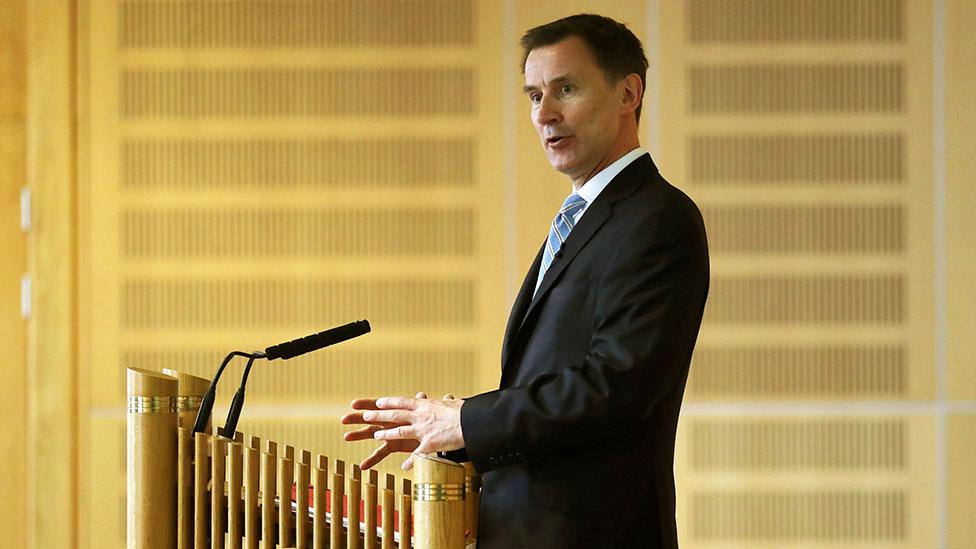Will indyref2 happen before May 2021?
- Published
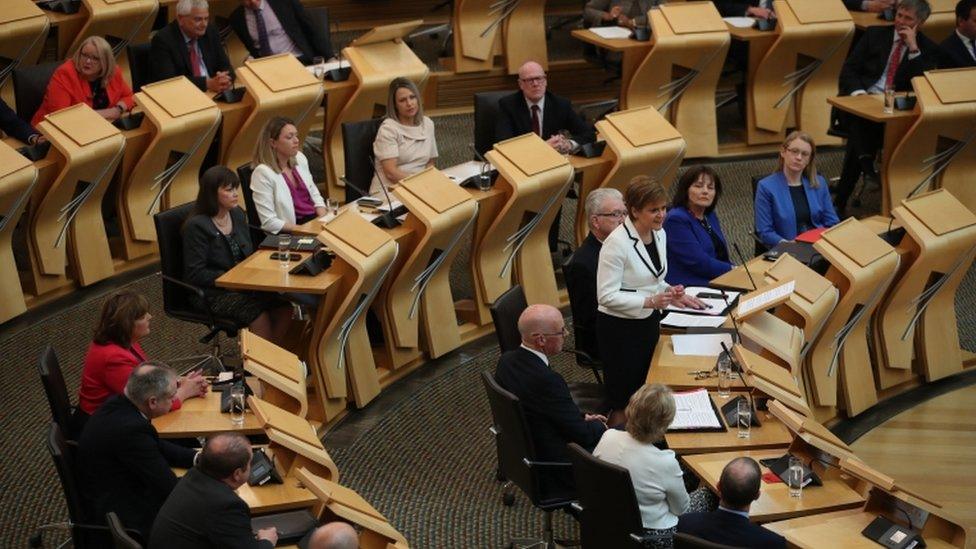
The first minister update MSPs on her plans for independence with a statement at Holyrood
First Minister Nicola Sturgeon wants to hold a fresh independence referendum before the next Holyrood elections in 2021. How likely is this to happen, and what are the issues underpinning it?

What has happened so far?
In March 2017, Ms Sturgeon announced her intention to hold a second Scottish independence referendum, as a response to the Brexit vote the previous year, and MSPs voted to back her.
But that same month, Prime Minister Theresa May said "now is not the time" for a new vote, saying all attention should be on the Brexit negotiations.
Mrs May then called a snap general election, and Ms Sturgeon decided to "reset" her independence plans in the wake of the SNP losing 21 seats in that vote.
Two years on, the first minister has returned to update MSPs on her timetable, saying she still hopes to hold "indyref2" before the end of the current Scottish Parliament term.
Work is to begin on legislation to make this happen - but Ms Sturgeon said she would hold off on moving to actually trigger such a vote until she can get the UK government to back it via a "section 30 order"
Meanwhile, all of this remains contingent on what happens with Brexit. Since the exit deadline was extended until October, that remains an open question, with no resolution in sight.

What is a Section 30 order?
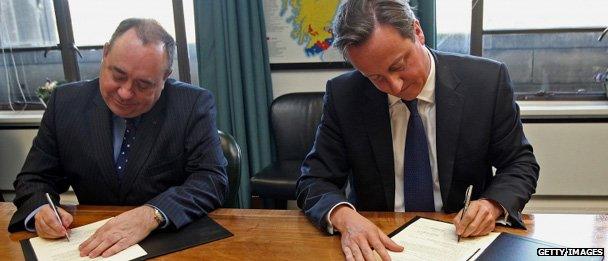
Alex Salmond and David Cameron signed up to the 2014 referendum, but no agreement has yet been struck for another
This much-discussed technicality refers to Section 30 of the 1998 Scotland Act, external, the mechanism by which Holyrood can legislate on reserved areas.
For the 2014 referendum, David Cameron and Alex Salmond - then the leaders of the UK and Scottish governments - signed the Edinburgh Agreement to transfer powers north of the border to underpin the referendum.
Nicola Sturgeon - also a signatory of the Edinburgh Agreement, as deputy first minister - wants to get a similar deal from the current PM, Mrs May.
She says this isn't strictly needed to draw up legislation for a referendum, but would be needed to "put beyond doubt or challenge" her government's ability to actually use the bill to trigger a vote.

What happens next?
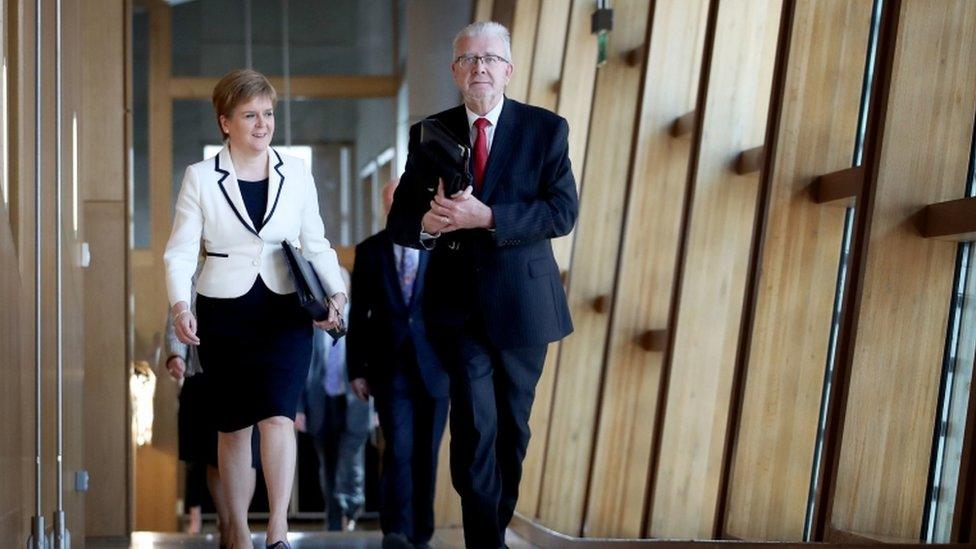
Mike Russell will get the job of setting out plans for legislation
In May, Scottish Constitutional Relations Secretary Mike Russell will set out plans for legislation to underpin a new referendum. This would be generic legislation for a vote, which could then be specifically shaped for a referendum at a later date.
Ms Sturgeon says her government "will aim for this legislation to be on the statute book by the end of the year" - something which should be possible with the support of the pro-independence Greens.
The first minister is also setting up a "Citizen's Assembly" to gather views from the public, and has reached out to opposition parties to see if there are any areas of consensus for constitutional change.
However, there remains an element of "wait and see" to the plans.
To start with, if there is a referendum at all it is contingent on what happens with Brexit - and clarity on that front could be months away.
And the impasse with the UK government remains. Ms Sturgeon wants a section 30 order, but it does not seem likely she will get one from Theresa May, or indeed any Conservative government.
On that front, the plans remain as up in the air as ever.

How could the impasse be broken?
Nicola Sturgeon says a second independence referendum will need a transfer of power from Westminster
At this point, it is not particularly obvious.
Ms Sturgeon believes the UK government position is "unsustainable", and that in any case they might not be in power for long.
She told MSPs that "no UK government will be able to deny the will of the people" if her party is "successful in further growing the support and demand for independence". Her party has launched a new campaign website, external to this end.
The SNP leader will also have her fingers crossed for a change of government at Westminster, particularly given the potential influence of her MPs in a parliament of slim margins.
If none of that comes to pass - is there anything she can do to force the UK government's hand?
The first minister will not hold a "wildcat" referendum without Westminster's backing. She has been clear that "the legal basis of any future referendum should be the same as the referendum in 2014".
Nor, if her position in 2017 is maintained, is Ms Sturgeon planning to go to court, despite some unresolved questions over whether Holyrood has the power to hold a referendum or not.
Conservative MSPs have already raised questions about the legality of the legislation for the new referendum, which could provide a forum to test the question once and for all - but in any case taking matters to the Supreme Court would take up more time than Ms Sturgeon has available to her this term.
If things drag on for long enough, she might simply have to seek a new mandate in the 2021 elections - a risk she would rather not take.

So will there be a referendum before 2021?
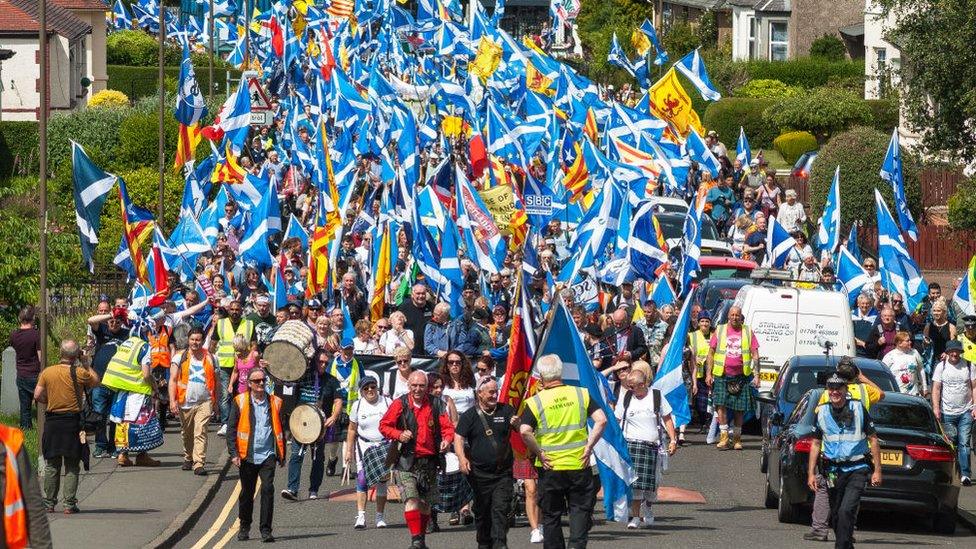
Will independence supporters get the referendum they want before the next Holyrood election?
Passing legislation would be the first step towards having a vote, and completing that before the end of 2019 would leave the door open for a vote inside Ms Sturgeon's timetable.
There would need to be time for the Electoral Commission to scrutinise proposals and for a campaign period before the vote is actually held, so a decision will have to come in time for that as well.
But Brexit hangs over all of this - to start with, Ms Sturgeon's call for a referendum is contingent on the UK actually leaving the EU. She continues to campaign for another new referendum to prevent that.
And if there is no clarity on what Brexit Britain is going to look like, it is difficult to put it on a ballot paper as a proposition people can vote for or against. In Mr Russell's words, there needs to be "thesis and antithesis" for people to make a genuine choice.
Ms Sturgeon is seeking to make productive use of the ongoing period of confusion, by laying the groundwork for a poll and getting her party ready for the campaign.
But as to whether there actually will be a referendum in the coming years - we still don't really know, and we're not likely to find out in the short term.
- Published22 April 2019
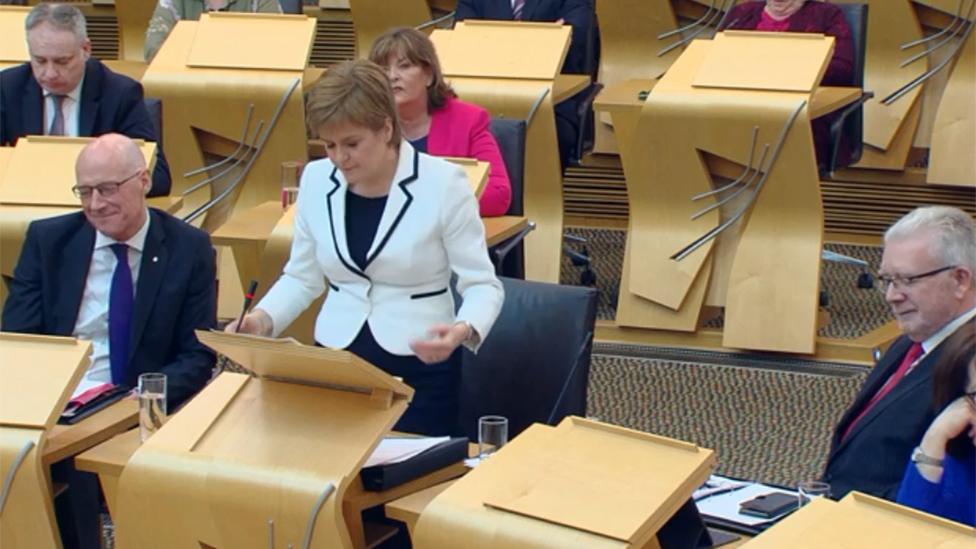
- Published24 April 2019
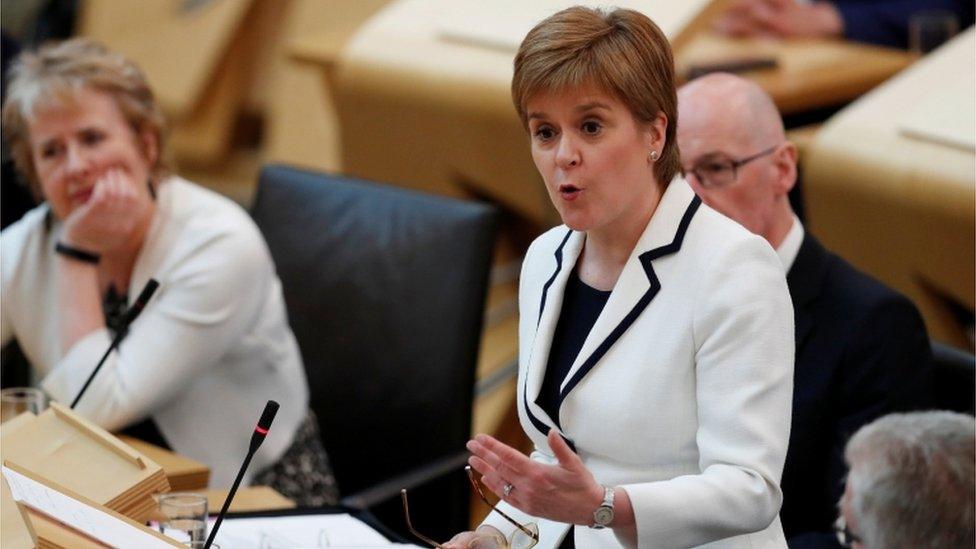
- Published7 March 2019
